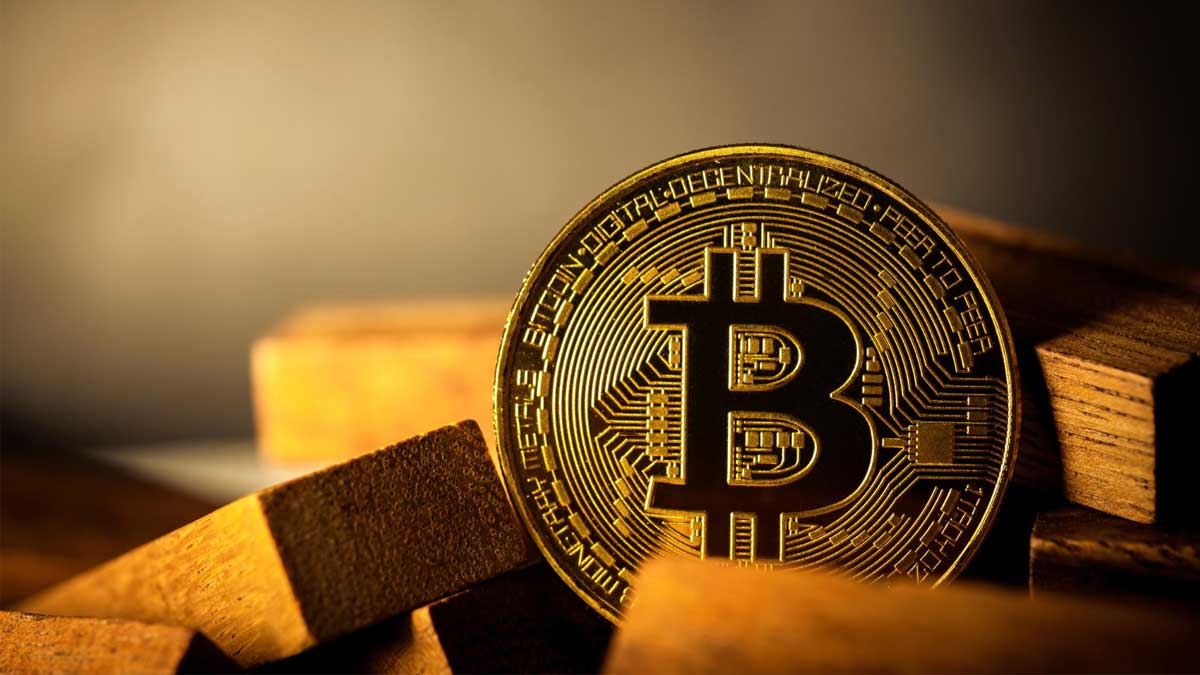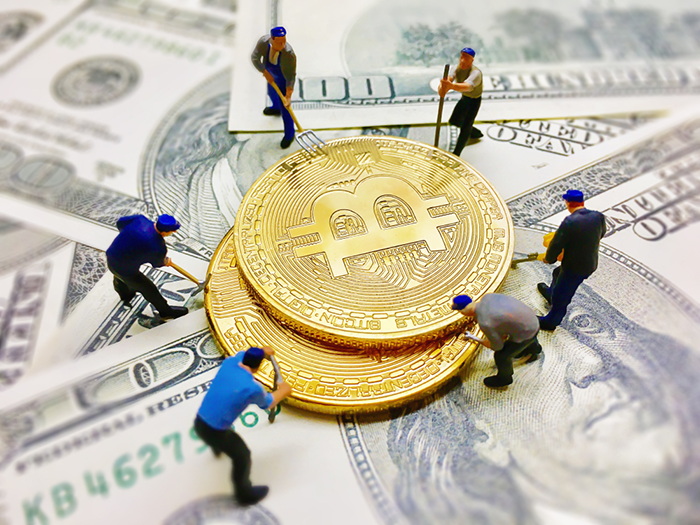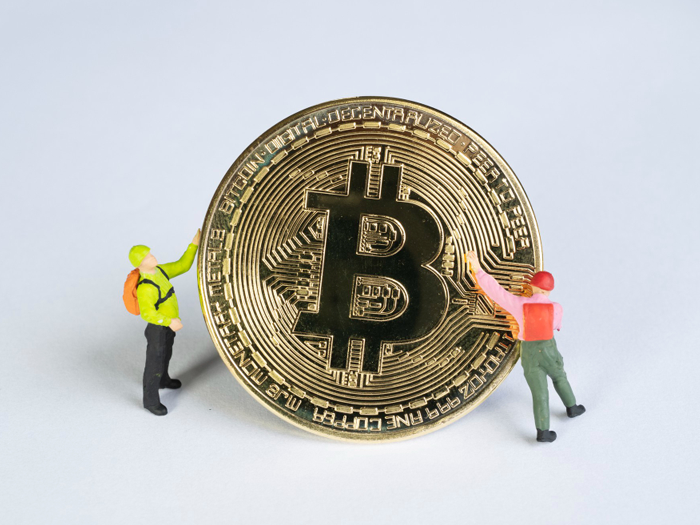- Education
- Introduction to Trading
- What is Bitcoin
What is Bitcoin
Bitcoin represents itself a digital currency invented in 2009. Satoshi Nakamoto is the person behind the creation of Bitcoin whose identity has not been confirmed yet. The present market cap for bitcoins available for use surpasses $134 billion. Bitcoin guarantees lower charges for transactions than online payment systems and is controlled by a decentralized authority.
As Bitcoins are digital, they are stored in the cloud, which also contains information about all bitcoin transactions. Currencies like USD or EURO are printed and tracked by government, unlike them, new bitcoins are released as a reward to miners for the service they provide and are not tracked by any third parties. Popularity of Bitcoin caused the creation of other cryptocurrencies even though neither Bitcoin nor any other cryptocurrency CFDs is legal.

How Bitcoin Works
One of the pioneers in using the peer-to-peer (P2P) technology was Bitcoin. The usage of P2P technology was a huge boost for bitcoin, as it made instant transactions real. Bitcoin network is formed of individuals and companies (known as “bitcoin miners”), who use their computing power and get bitcoins as a reward. The reward of miners consists of transaction fees and new bitcoins, which are released to them at a fixed, but constantly decreasing rate. The reward system is organized in a way to have supply of approximately 21 million bitcoins in the end.
The Concept of Bitcoin Futures
The steadily growing popularity of Bitcoin resulted in the creation of Bitcoin futures. On December 2017, Chicago Mercantile Exchange (CME), the world's largest futures exchange, launched its own bitcoin futures contract under the ticker "BTC", which initiated a new stage in Bitcoin market.
Bitcoin futures are an agreement between two parties to buy or sell BTC at a set price and at a future date. If you think that bitcoin price will rise, then you buy a contract at a price set lower than the price you think will be in future. When the price rises in future, you can sell the contract and gain profit from the price difference. Everything is quite simple: the concept of Bitcoin futures trading is the same as that of futures trading on other financial assets. Bitcoin futures contracts are extremely useful for people who hold a lot of BTC, since these contracts are a perfect hedging tool.
Bitcoin Futures Trading with IFC Markets
IFC Markets, a leading Forex and CFD broker in the international financial markets, offers its customers to get engaged in and discover the benefits of Bitcoin futures trading.
- Bitcoin Futures trading gives you the opportunity to open a “short” (sell) position now and buy it back in the future, if you think that the price will fall. Thus, you can gain profit not only on Bitcoin’s price increase, but also on price decrease.
- IFC Markets provides its customers with 1:2 leverage (Learn more about What is Leverage). You can trade bitcoins twice exceeding the funds on your account.
- IFC Markets offers its customers CFDs on Bitcoin futures, which allow traders to invest in the price dynamics of the most popular cryptocurrency through liquid futures on the reliable and regulated largest commodity exchange and trade BTC futures with the guarantee of full security of transactions.
- IFC Markets gives the opportunity to trade with a relatively small volume: you can open positions starting from 0.05 Bitcoins.
Bitcoin Mining
Mining of bitcoin is the most fundamental process of bitcoin network. All transactions taking place in the network are verified and computed to the public data, which is also known as the block chain. Moreover, as already said it is the only way through which new bitcoins are released. Every individual who has an internet connection and owns fitting hardware can act as a miner. Miners collect data of recent transactions into blocks and then solve the mathematical problem in order to add the block to block chain. The first one to solve the problem gets his block added to block chain. The individual whose block is added gets bitcoins in return of the service provided. Clearly, bitcoin network is beneficial for both miners and the network.

Should 210.000 blocks be produced, bitcoin reward amount gets halved. More detailed explanation is needed to understand the system. Hence, bitcoin reward per block was 50 units on years 2009-2013 after it was 25 units per block on 2013-2016, it is currently equal to 6.25 units per block and will be less in the future, as this number will be halved every 4 years. The logic behind the decreasing reward system stands for the network to have supply of 21 million units of Bitcoin.
The difficulty of mathematical problems that miners solve in order to get block added to block chain is rising because of the increasing amount of miners. The difficulty can be altered by the protocol, which revises it every 14 days or 2016 blocks. The purpose of controlling the difficulty is to keep regular block discovery rate. In this way, we understand that difficulty changes with demand.
The increasing competition and difficulty of mining influences the prices of equipment needed to mine. Moreover, miners should have up to date equipment to stay eligible for this process.
Miners’ primary task is to double-check the transactions held previously in bitcoin network. This task is mandatory in solving the “double-spending” problem. Thus, the issue is that a Bitcoin is being spent twice, while the same thing could not happen with actual money. The miners are working in this direction to prevent further issues with this.
As soon as a miner checks bitcoin transactions worth 1 MB, they will have a chance of earning 12.5 BTC. It is important to mention that not all miners who are eligible for reward will eventually get that. The one who checks the data fastest gets the bitcoins.
Bitcoin Value
Just like everything in economics, bitcoin value is rising as well along with the increase in its production costs and demand. As already mentioned, the mining equipment is getting more costly by the time, which surely influences the prices of bitcoin.
Invention of Bitcoin
The name of the real inventor is unknown to us. However, the person who first issued the Bitcoin white paper and collaborated heavily on releasing its software in 2009 introduced himself as Satoshi Nakamoto. Moreover, the first person to sign up in the system and create the first block in block chain was he.

There may be two reasonable arguments for hiding Bitcoin’s creator’s true individual details. The first argument is privacy. Currently, we can see how much attention is drawn upon Bitcoins by people, governments and worldwide media. This, certainly, leads to the increasing interest in the inventor’s identity as well.
The second reason is safety. The main reason, which pushes Bitcoin creator to stay anonymous, is that during the first period of bitcoin there were a few people, who knew about it. There is an opinion that in that period only the creator and people close to him mined bitcoins. In the first year 1,624,500 BTC was produced, and if Satoshi and the people surrounding him were the owners of that quantity, their identity would draw attention of hackers. So, it is logical that people will stay anonymous.
Risks of Investing in Bitcoin
Price volatility
Any investment in bitcoin network is considered extremely risky because of its price volatility. Many famous economists have already spoken about the high prices of bitcoin and further potential to rise. Huge interest in this field will bring more investors, and eventually prices will increase even more, which will create an economic bubble with high probability of bursting in near future. Bitcoin’s price reached its peak on December 2017, when its value was around $20K and now it is about 8K. This kind of ups and downs are getting normal in the field of cryptocurrencies, which shows us that it would be extremely risky to make an investment here.
Hacking risk
Another huge risk of keeping bitcoins is the risk of being hacked. Every bitcoin owner has his own private and public keys. It is getting more difficult nowadays to keep your private key really private. More and more cases of hacking are being registered by the time and it becomes a huge issue for owners.
Prone to illegal activity
As already mentioned bitcoin is not being tracked by any third-parties. This fact attracts people, who are involved in crimes. Lot of people keep themselves away from bitcoin, because they understand that if bitcoins become common money, the crime rate across the world will increase. In fact, there are many terrorists using bitcoin. Moreover, money laundering can be done via the bitcoin network.
Quotes
President of Russian Federation said that cryptocurrencies could be an efficient medium of exchange but warned that they cannot be a store of value and that Russia's central bank would have to regulate it, as reported by Russian news agency TASS in January 2018.
“It can be very risky for businesses, industry and people to trade or invest in bitcoins as it is just a formula, not backed by any tangible asset, but by sheer demand,” says S.P. Sharma, Chief Economist, PHD Chamber of Commerce and Industry.
Billionaire investor Warren Buffett "In terms of cryptocurrencies, generally, I can say with almost certainty that they will come to a bad ending,"
Jamie Dimon, CEO of JPMorgan Chase
“It’s a fraud … It's worse than tulip bulbs. It won't end well. Someone is going to get killed."
"Right now, these crypto things are kind of a novelty. People think they're kind of neat. But the bigger they get, the more governments are going to close them down."
"If you're stupid enough to buy it, you'll pay the price for it one day."
“It’s not a real thing. It’s a fraud.”

